SGGP
After the first large-scale protests in South Korea's history, the country's Ministry of Education has introduced a series of new policies to protect teachers' legal rights against bullying from parents and students. However, these policies have not met the teachers' previous demands and seem to have done more harm than good.
 |
| Memorial for an elementary school teacher who committed suicide due to school pressure. Photo: Yonhap |
On the anvil under the hammer
The latest protest by about 100,000 South Korean teachers, which was also a march to commemorate the suicide of a young female colleague, took place on September 4, marking a historic moment in the country’s education sector. The march was the last straw after many teachers committed suicide due to excessive stress due to insults from parents and students.
Threats, defamation (by phone calls at any time) or even attacks (throwing pens at teachers) have been common occurrences for a long time. Before September 4, the Korean Ministry of Education introduced new policies to ensure the legal rights of teachers by giving them more control over the classroom. Accordingly, teachers have the right to ask individual students to leave the classroom, confiscate phones, require parents to make an appointment if they want to meet the teacher, etc. In case of threats of attack, teachers are allowed to use force to restrain disruptive students.
However, according to the Korea Herald, the new policy also allows students or parents to evaluate teachers' teaching methods with the principal, instead of directly filing complaints with the teacher. According to lawyer Kim Ji-yeon of Young Lawyers for a Better Future, the scope of the new policy is too vague, still unable to prevent excessive intervention from parents because parents are also given the right to intervene. That only allows overbearing parents to abuse their power.
Even though teachers have the right and obligation to discipline unruly students, principals can still ask teachers to reduce the student’s sentence. Under pressure from above and below, feeling a lack of basic respect, despite the Ministry of Education’s moves to protect their rights, many teachers choose to “leave forever” because they cannot bear the insults from students and parents.
Change definition
Bullying has been a serious problem in South Korea for decades. Analysts say parents and students have taken advantage of the legal and administrative system, specifically the Child Welfare Act, enacted in 2014 (which prohibits any form of corporal punishment on children), to bully teachers. The law does not allow teachers to intervene in cases of student fighting. Even scolding can be classified as “emotional abuse,” leading to teachers being fired.
Since 2018, hundreds of teachers have committed suicide, most suffering from depression due to work stress. Last year, 12,000 teachers quit. Meanwhile, about 10,000 school- and college-age youth commit suicide each year. The pressure on South Korean students from kindergarten onwards is so great that anyone who is different or fails to do their part can become a target for bullying. The root of this is South Korea’s hyper-competitive society, which sees education as the most acceptable form of social advancement.
In a society where everything depends on academic success, parents often look to teachers, according to Archyde. Many believe that the entire Korean education system needs to be reformed. Deputy Prime Minister and Education Minister Lee Joo-ho said: “I think it is time to redesign (the teacher evaluation system) because the conditions for students and teachers have changed a lot.”
South Korea has the highest suicide rate in the developed world and the lowest birth rate in the world due to the burden of raising children. Where families used to have five or six children, most now have just one. Professor Kim Bong-jae of Seoul National University of Education said the reason is rising inequality. There is still a long way to go, but the issue is a hotly debated topic in South Korean politics.
According to Professor Park Nam-gi of Gwangju National University of Education, the definition of success in society needs to change. The Korean Ministry of Education should invest more financial and human resources if it wants to create a better learning environment. Otherwise, the new measures will push teachers to the brink once again.
Source


![[Photo] Solemn opening of the 12th Military Party Congress for the 2025-2030 term](https://vphoto.vietnam.vn/thumb/1200x675/vietnam/resource/IMAGE/2025/9/30/2cd383b3130d41a1a4b5ace0d5eb989d)
![[Photo] General Secretary To Lam, Secretary of the Central Military Commission attends the 12th Party Congress of the Army](https://vphoto.vietnam.vn/thumb/1200x675/vietnam/resource/IMAGE/2025/9/30/9b63aaa37ddb472ead84e3870a8ae825)
![[Photo] The 1st Congress of Phu Tho Provincial Party Committee, term 2025-2030](https://vphoto.vietnam.vn/thumb/1200x675/vietnam/resource/IMAGE/2025/9/30/1507da06216649bba8a1ce6251816820)

![[Photo] President Luong Cuong receives President of the Cuban National Assembly Esteban Lazo Hernandez](https://vphoto.vietnam.vn/thumb/1200x675/vietnam/resource/IMAGE/2025/9/30/4d38932911c24f6ea1936252bd5427fa)
![[Photo] Panorama of the cable-stayed bridge, the final bottleneck of the Ben Luc-Long Thanh expressway](https://vphoto.vietnam.vn/thumb/1200x675/vietnam/resource/IMAGE/2025/9/30/391fdf21025541d6b2f092e49a17243f)





















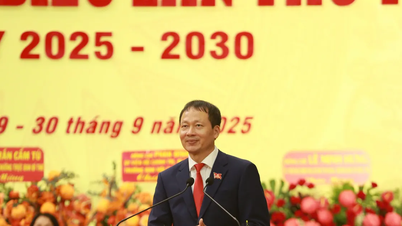




















































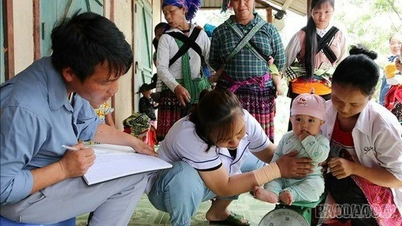
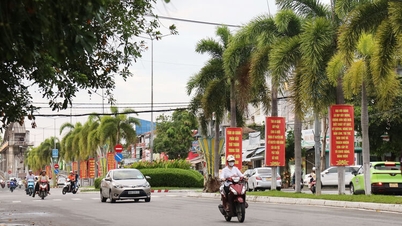

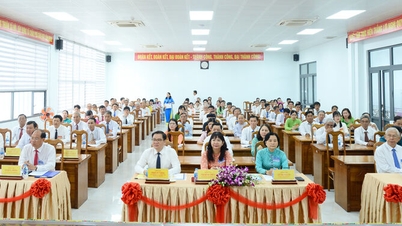
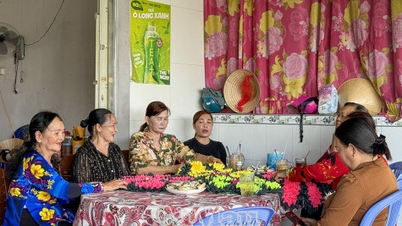















Comment (0)